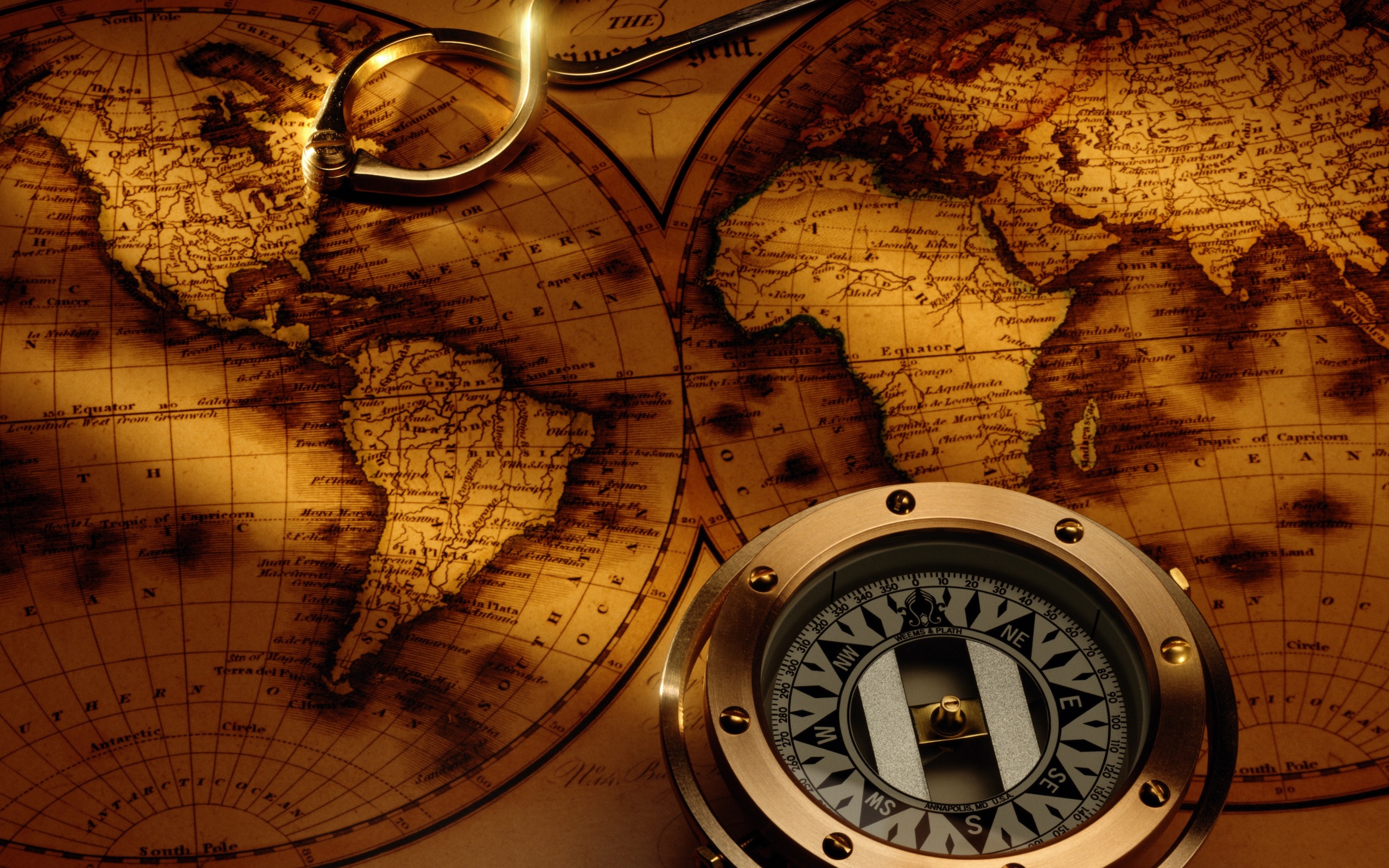Shocking Historical Events You've Never Heard Of - Forgotten And Shocking
Throughout history, there have been many shocking events that have had a significant impact on the world, yet remain largely unknown to the general public. From acts of genocide to environmental disasters, these events have shaped our world in ways we may not fully understand. In this article, we will explore some of the most shocking historical events you've never heard of.
Author:Xander OddityReviewer:Dr. Felix ChaosphereApr 26, 202369 Shares1.4K Views

Throughout history, there have been many shocking events that have had a significant impact on the world, yet remain largely unknown to the general public. From acts of genocide to environmental disasters, these events have shaped our world in ways we may not fully understand. In this article, we will explore some of the most shocking historical events you've never heard of.
Surprising And Little-known Events From World History
The Taiping Rebellion (1850-1864)
The Taiping Rebellion was a civil warin China that lasted from 1850 to 1864. It was fought between the ruling Qing dynasty and the Taiping Heavenly Kingdom, a Christian religious movement led by Hong Xiuquan.
The rebellion is considered one of the deadliest conflicts in human history, with an estimated death toll of between 20 and 30 million people.
The Taiping Heavenly Kingdom was established in 1851 when Hong Xiuquan proclaimed himself as the younger brother of Jesus Christ and announced his mission to create a new kingdom on earth.
The Taiping movement drew support from people who were discontented with the corrupt and ineffective Qing dynasty government, particularly in the southern provinces of China.
The Taiping forces quickly gained control of large parts of southern China, including the city of Nanjing, which became their capital. They instituted a series of reforms, including the abolition of private property, the promotion of gender equality, and the establishment of a modern education system.
The Taiping government also launched a campaign against opium use and the sale of women, and they introduced a new calendar, weights and measures, and currency.
The Qing dynasty, which had ruled China for over 200 years, was initially caught off guard by the Taiping Rebellion. However, they eventually mobilized their forces and launched a counterattack.
The Taiping forces were initially successful, but they were eventually weakened by internal disputes and the inability to maintain supplies and equipment. In addition, the Qing dynasty was able to secure the support of Western powers, who were concerned about Taiping's anti-foreign policies.
The rebellion was marked by numerous atrocities committed by both sides. The Taiping forces, for example, carried out mass executions of Qing officials and their families, as well as civilians who refused to convert to their religion. The Qing forces, in turn, carried out massacres of Taiping supporters and captured soldiers.
The Taiping Rebellion came to an end in 1864, when the Qing dynasty launched a massive assault on Nanjing, which had been held by the Taiping for over a decade. The city was finally captured in July of that year, and the Taiping leadership fled to Guangxi province. Hong Xiuquan, the leader of the rebellion, died in June 1864, possibly from an overdose of opium.

Hong Xiuquan: The Taiping Rebellion
The Great Kanto Earthquake (1923)
The Great Kanto Earthquake was a devastating earthquake that struck the Kanto region of Japan on September 1, 1923. The earthquake, which measured 7.9 on the Richter scale, caused widespread damage and destruction, including fires that burned for days and resulted in the deaths of an estimated 140,000 people.
The earthquake struck at 11:58 am local time and lasted for nearly four minutes. It was centered in the Sagami Bay, off the coast of the Izu Peninsula, and was caused by a rupture along the fault line between the Pacific and Eurasian tectonic plates.
The earthquake caused widespread damage in Tokyo and the surrounding areas, including Yokohama and Kawasaki. Many buildings collapsed or were severely damaged, and roads, bridges, and railways were destroyed.
The earthquake also triggered fires throughout the region, which were fueled by the many wooden buildings and structures in the area.
The fires that followed the earthquake were responsible for much of the destruction and loss of life. The fires were initially started by gas and oil leaks and quickly spread throughout the city, consuming everything in their path. The fires burned for three days and destroyed over 70% of Tokyo's buildings and homes.
The earthquake also triggered a tsunami, which caused further damage along the coast. The tsunami reached heights of up to 12 meters and caused widespread flooding and destruction.
In the aftermath of the earthquake, many people were left homeless and without food or water. The government and international aid organizations worked to provide relief and assistance to those affected by the disaster, but the scale of the destruction made it difficult to provide adequate help to everyone in need.
The Great Kanto Earthquake had a profound impact on Japan, both in the immediate aftermath and in the years that followed.
The disaster highlighted the need for better earthquake preparedness and disaster response measures, and led to the development of new building codes and regulations to improve the safety of buildings and infrastructure in earthquake-prone areas.

This Powerful 1923 Earthquake Brought Tokyo to Its Knees
The Bhopal Gas Tragedy (1984)
The Bhopal Gas Tragedy of 1984 is one of the worst industrial disasters in history. It occurred on the night of December 2-3, 1984, in the city of Bhopal, located in the central Indian state of Madhya Pradesh. The incident was a result of the leakage of toxic gas from a pesticide plant owned by Union Carbide India Limited (UCIL).
The UCIL pesticide plant was established in Bhopal in the 1970s to produce Sevin, a pesticide that contains methyl isocyanate (MIC) as one of its key ingredients.
On the fateful night of December 2-3, 1984, a storage tank containing 42 tons of MIC overheated and released a deadly gas cloud into the air. The gas, which was heavier than air, spread rapidly over the surrounding neighborhoods, killing thousands of people instantly.
The immediate aftermath of the tragedy was horrific. The gas cloud enveloped a large area, killing thousands of people and leaving many more severely injured.
The exact number of fatalities is still disputed, but estimates range from 3,000 to 16,000 deaths in the first few days after the leak, with many more deaths in the following years due to health complications.
The incident caused widespread panic, chaos, and confusion, with many people fleeing their homes and trying to escape the toxic gas cloud. The Indian government was slow to respond to the crisis, with many officials and emergency responders ill-equipped to handle the scale of the disaster.
The Bhopal Gas Tragedy had long-lasting and devastating effects on the people of Bhopal. The gas leak caused severe respiratory problems, blindness, birth defects, and other health complications in the people who were exposed to the gas.
Many people continue to suffer from health problems related to the disaster, and the city's groundwater is still contaminated with toxic chemicals from the plant.
Union Carbide, the company responsible for the disaster, initially denied responsibility for the incident, claiming that it was caused by sabotage. However, investigations later revealed that the company had cut corners on safety measures to save costs, and that the plant was poorly maintained and in a state of disrepair.
The disaster led to widespread outrage and calls for justice from the people of Bhopal and around the world. Union Carbide eventually settled with the Indian government for $470 million, but the victims of the disaster received only a small fraction of this amount.

The Bhopal gas tragedy: Toxic legacy
People Also Ask
What Are Some Lesser-known Historical Events That Are Shocking?
Some lesser-known historical events that are shocking include the Rwandan Genocide, the Armenian Genocide, the Rape of Nanking, the Trail of Tears, and the Srebrenica Massacre.
What Is The Most Shocking Historical Event?
This is subjective and can vary depending on personal opinions and perspectives. However, some historical events that are widely considered shocking include the Holocaust, the atomic bombings of Hiroshima and Nagasaki, and the September 11 attacks.
What Are Some Shocking Historical Events That Have Been Forgotten Or Overlooked?
Some shocking historical events that have been forgotten or overlooked include the Congo Free State atrocities, the Chinese Exclusion Act, the forced sterilization of Native American women, and the Tuskegee syphilis experiment.
How Do Shocking Historical Events Impact Society Today?
Shocking historical events can impact society today by shaping cultural attitudes and beliefs, influencing political decisions, and inspiring social justice movements. They can also contribute to collective trauma and affect individual and collective mental health.
Why Is It Important To Learn About Shocking Historical Events?
Learning about shocking historical events is important for understanding the complexities of human history, recognizing the patterns of violence and oppression that have persisted over time, and promoting empathy and understanding for marginalized communities. It can also help prevent similar atrocities from occurring in the future.
Conclusion
The shocking historical events you've never heard of are just a few examples of the many shocking historical events that have shaped our world. While they may not be as well-known as other events in history, they deserve our attention and remembrance. By acknowledging and learning from these events, we can work towards creating a more just and peaceful future.

Xander Oddity
Author
Xander Oddity, an eccentric and intrepid news reporter, is a master of unearthing the strange and bizarre. With an insatiable curiosity for the unconventional, Xander ventures into the depths of the unknown, fearlessly pursuing stories that defy conventional explanation. Armed with a vast reservoir of knowledge and experience in the realm of conspiracies, Xander is a seasoned investigator of the extraordinary.
Throughout his illustrious career, Xander has built a reputation for delving into the shadows of secrecy and unraveling the enigmatic. With an unyielding determination and an unwavering belief in the power of the bizarre, Xander strives to shed light on the unexplained and challenge the boundaries of conventional wisdom. In his pursuit of the truth, Xander continues to inspire others to question the world around them and embrace the unexpected.

Dr. Felix Chaosphere
Reviewer
Dr. Felix Chaosphere, a renowned and eccentric psychiatrist, is a master of unraveling the complexities of the human mind. With his wild and untamed hair, he embodies the essence of a brilliant but unconventional thinker. As a sexologist, he fearlessly delves into the depths of human desire and intimacy, unearthing hidden truths and challenging societal norms.
Beyond his professional expertise, Dr. Chaosphere is also a celebrated author, renowned for his provocative and thought-provoking literary works. His written words mirror the enigmatic nature of his persona, inviting readers to explore the labyrinthine corridors of the human psyche.
With his indomitable spirit and insatiable curiosity, Dr. Chaosphere continues to push boundaries, challenging society's preconceived notions and inspiring others to embrace their own inner tumult.
Latest Articles
Popular Articles